
It was a starlit night. Flickering light from dozens of oil lamps cast long shadows. Abdul Ghani sat with eyes firmly shut. His focus, on the words he was uttering, and on the steady beat set by a duo of tambourines. As his serene voice filled the air another joined in, that of Haja Maideen. Bathed by the light from the oil lamps, they swayed as if in a trance. My brain could barely decipher the mix of chaste Tamil and Urdu they used in their praise — their pugazh maalai — of Allah and that of Sufi saint Hazrat Syed Shahul Hameed of Nagore. But in that moment, it seemed irrelevant. It felt sufficient to sit still and listen. Meditative even.
A poem by Tirunāvukkarasar, the 7th century Tamil saint, written in praise of Shiva was painted on the wall behind them. Its mere presence added a layer of cultural complexity to the scene. Sufi meets Shiva meets bhakti. The effect was simply electric. So much so, that the thought of it gives goosebumps.
Abdul Ghani and Haja Maideen
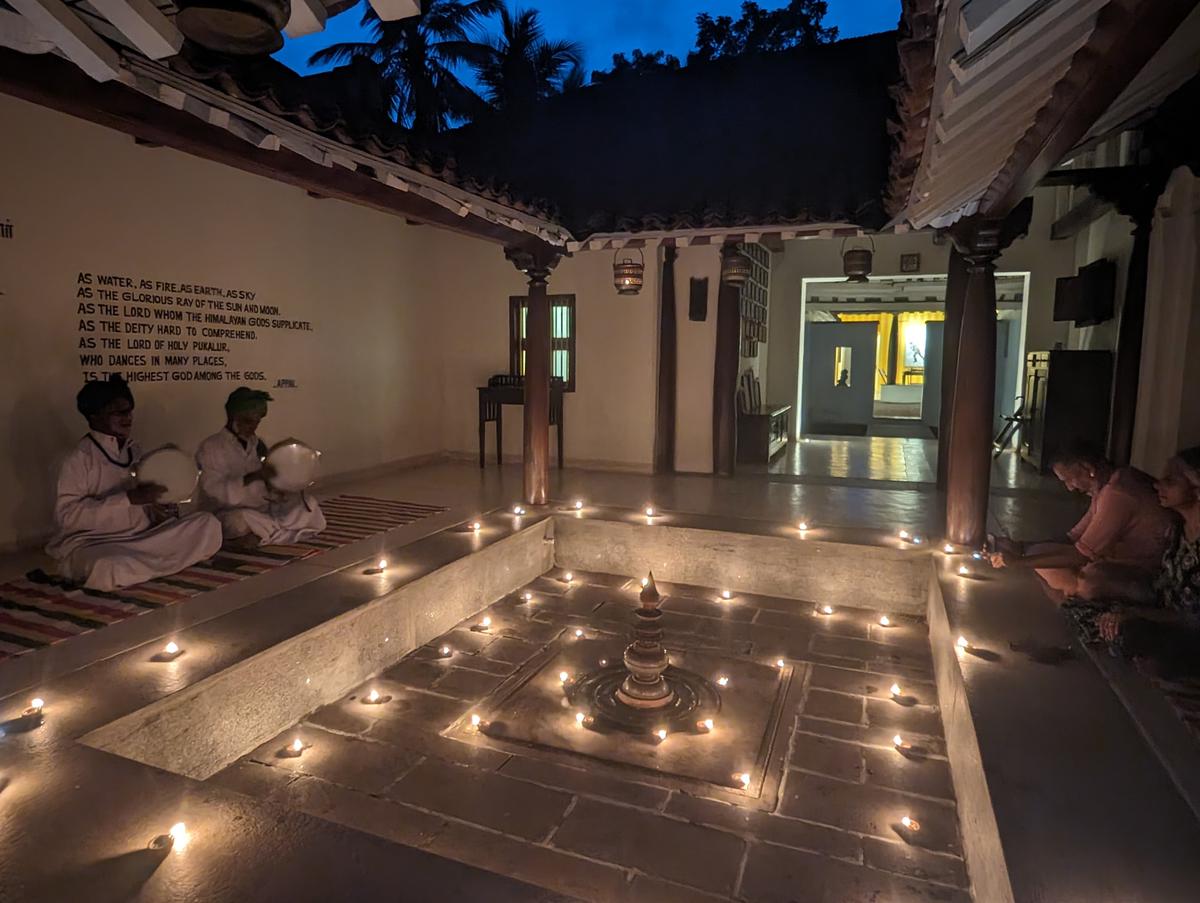
The Tamil Sufi performers at Mangala Heritage
The duo, if you hadn’t guessed it already, were the Tamil Sufi performers made famous by the award-winning 2007 documentary, The Laya Project. That evening they had performed for us, a grand audience of three, at Mangala Heritage. A tastefully arranged four-bedroom residence, partly built in the traditional style, in the tiny village of Thiruppugalur, in Tamil Nadu’s Nagapattinam district. Mangala is managed by the Chennai-based LuxUnlock, founded and run by Ashish and Rucha Gupta. The company’s aim is to not be your average villa rental service. Rather, as Ashish put it, “We want our guests to experience the destination through our properties.” Sell the destination, and the villa will sell itself — generating revenue for both the operator and the destination. The latter through the local services engaged by the visitor and the employment generated by it.
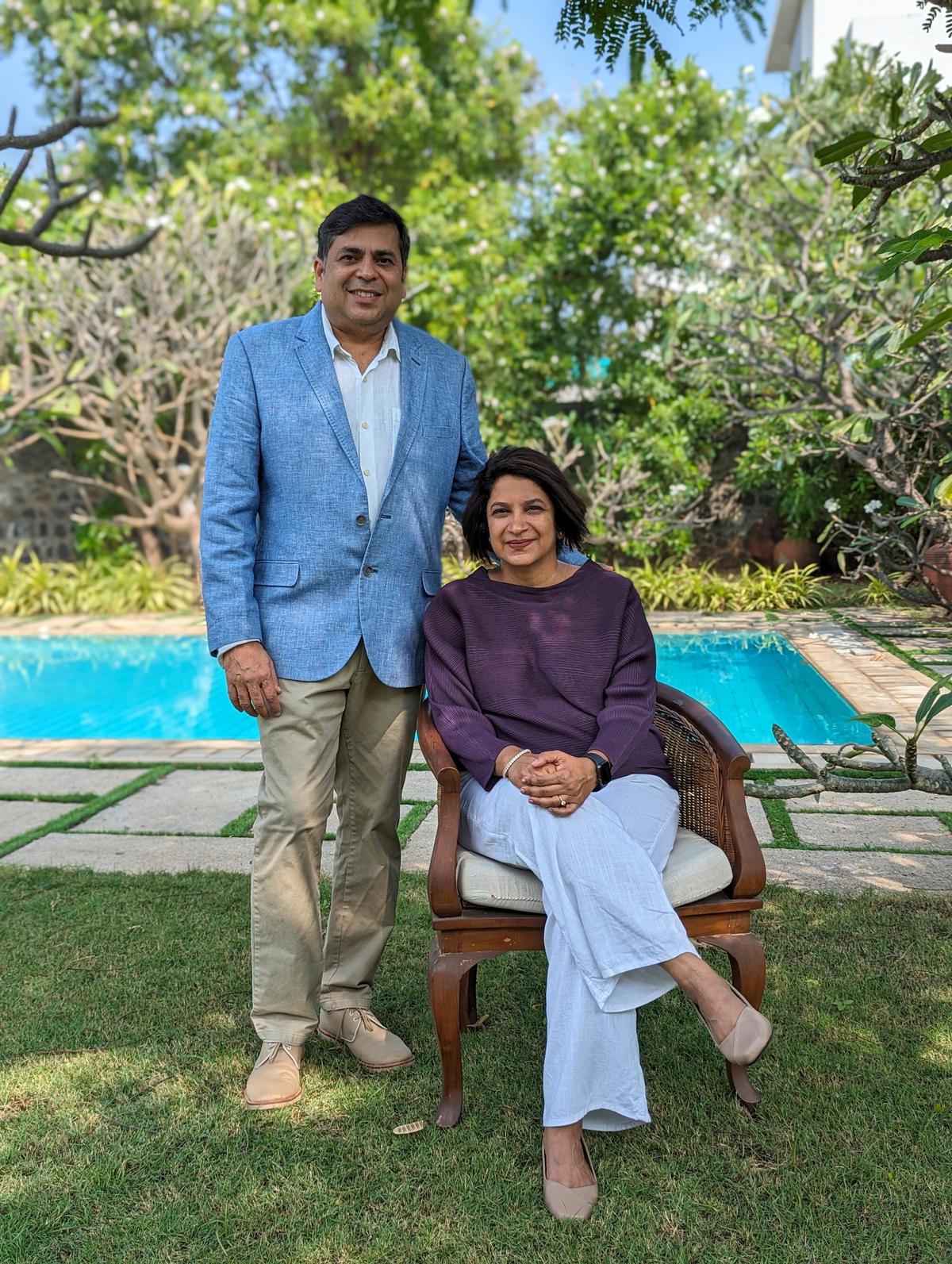
Ashish and Rucha Gupta
The promise of regional tourism
Having had a ring side view of hospitality in India over the past decade, to me the Guptas’ strategy speaks to the promise of regional tourism that goes beyond your average brick-and-mortar accommodation rental business. Moving from a present that’s governed by the number of room nights filled, to a future of giving guests ‘the feels’, as Gen Z might describe it, of a destination.
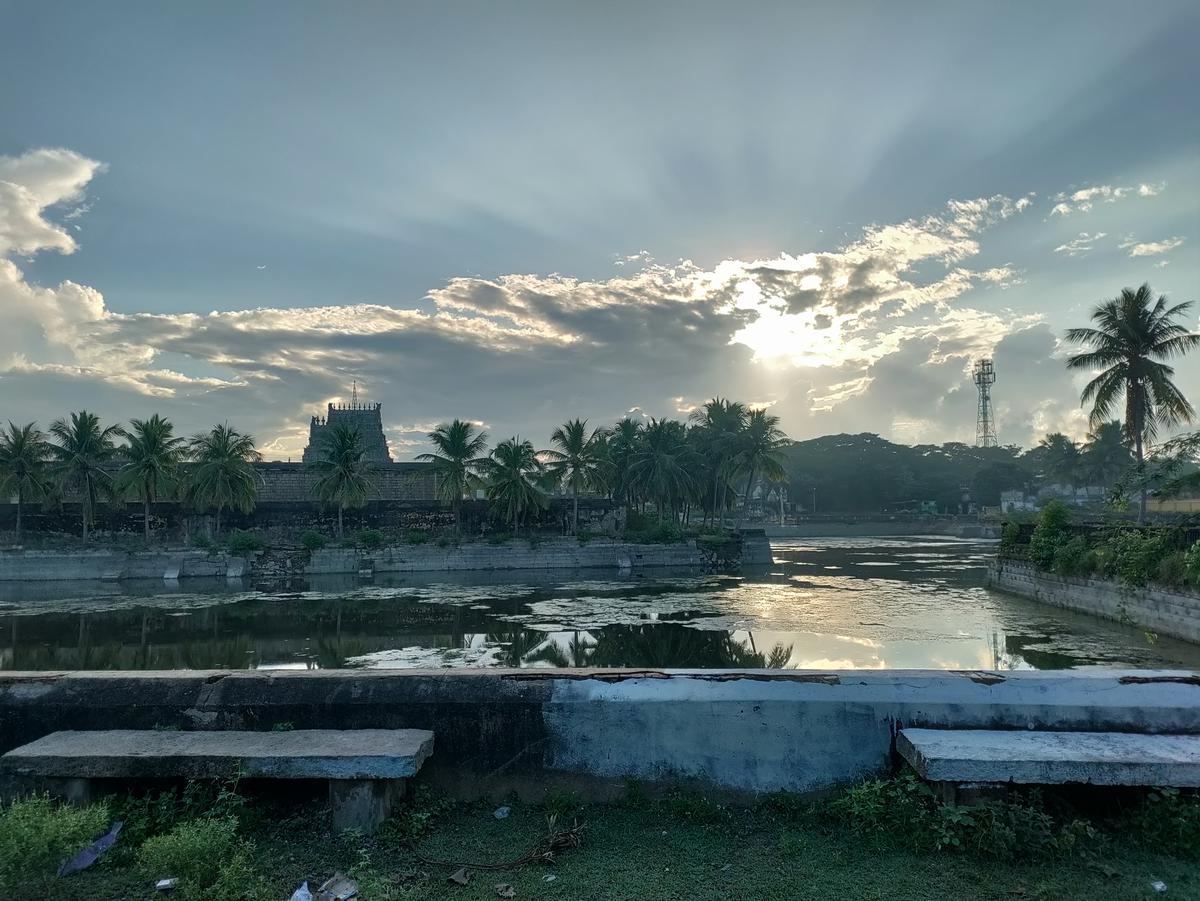
Sri Agneeswarar Temple at sunrise from Mangala Heritage
The Sufi recital was an example of this vision. We did visit the dargah itself, yes. But having Ghani and Maideen, both hereditary singers at the Nagore dargah, perform in our own space was immeasurably special. It gave us a real opportunity to learn and understand a facet of Tamil culture, which we otherwise would not have had.
Over the next few days there were several more such interactions. A wood worker who builds temple chariots explained the intricacies of his art. A theologian dived so deep into the myths that surround his favourite temple that we were left gasping for air. And there was that temple priest who unwittingly revealed frescos that showed rosy-cheeked cherubs painted alongside Hindu deities. A pointer to the cultural exchanges this land has seen. Each individual, an actor playing a role in revealing a different aspect of the art, history and culture of central Tamil Nadu.
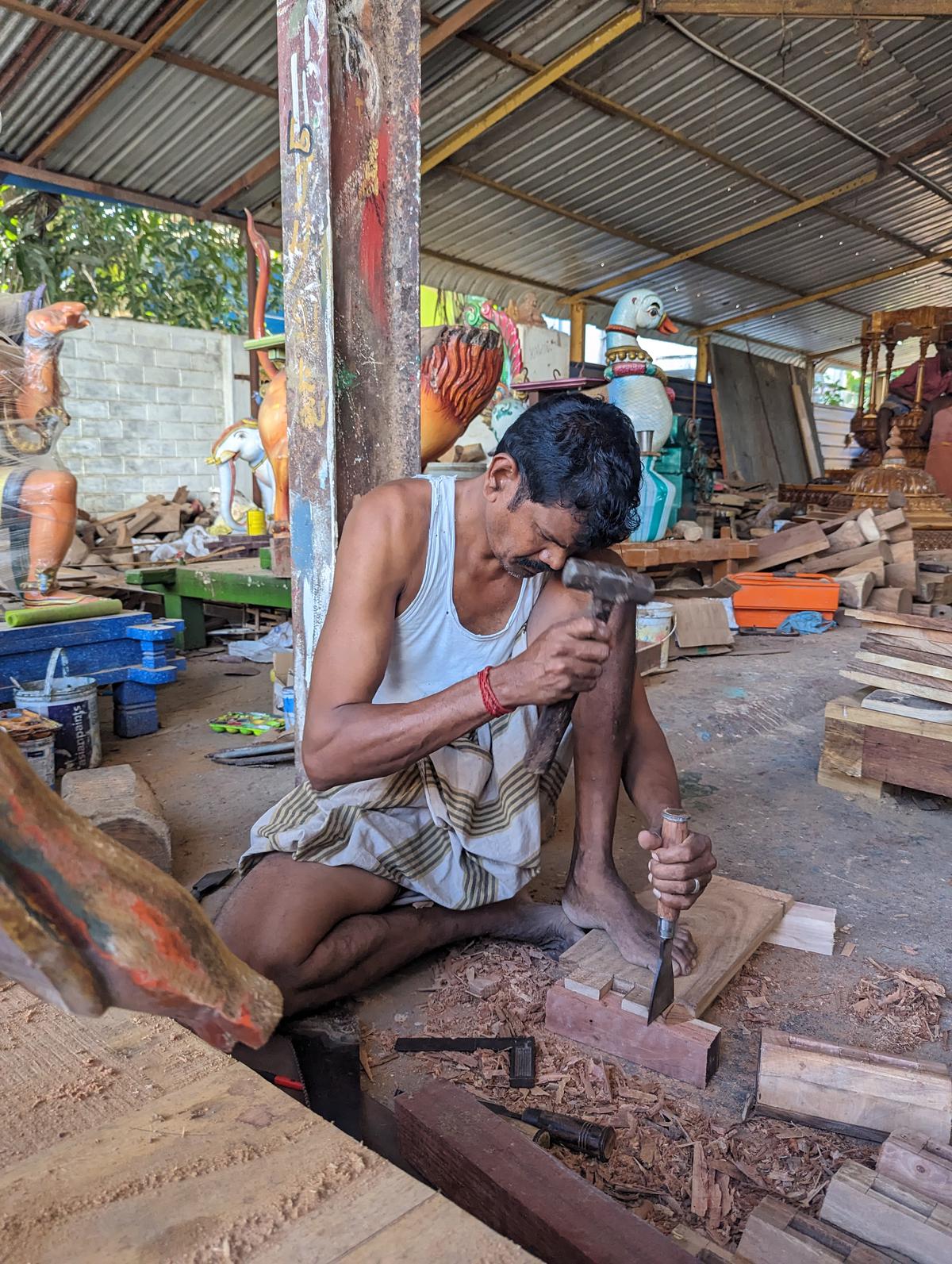
The wood worker crafting
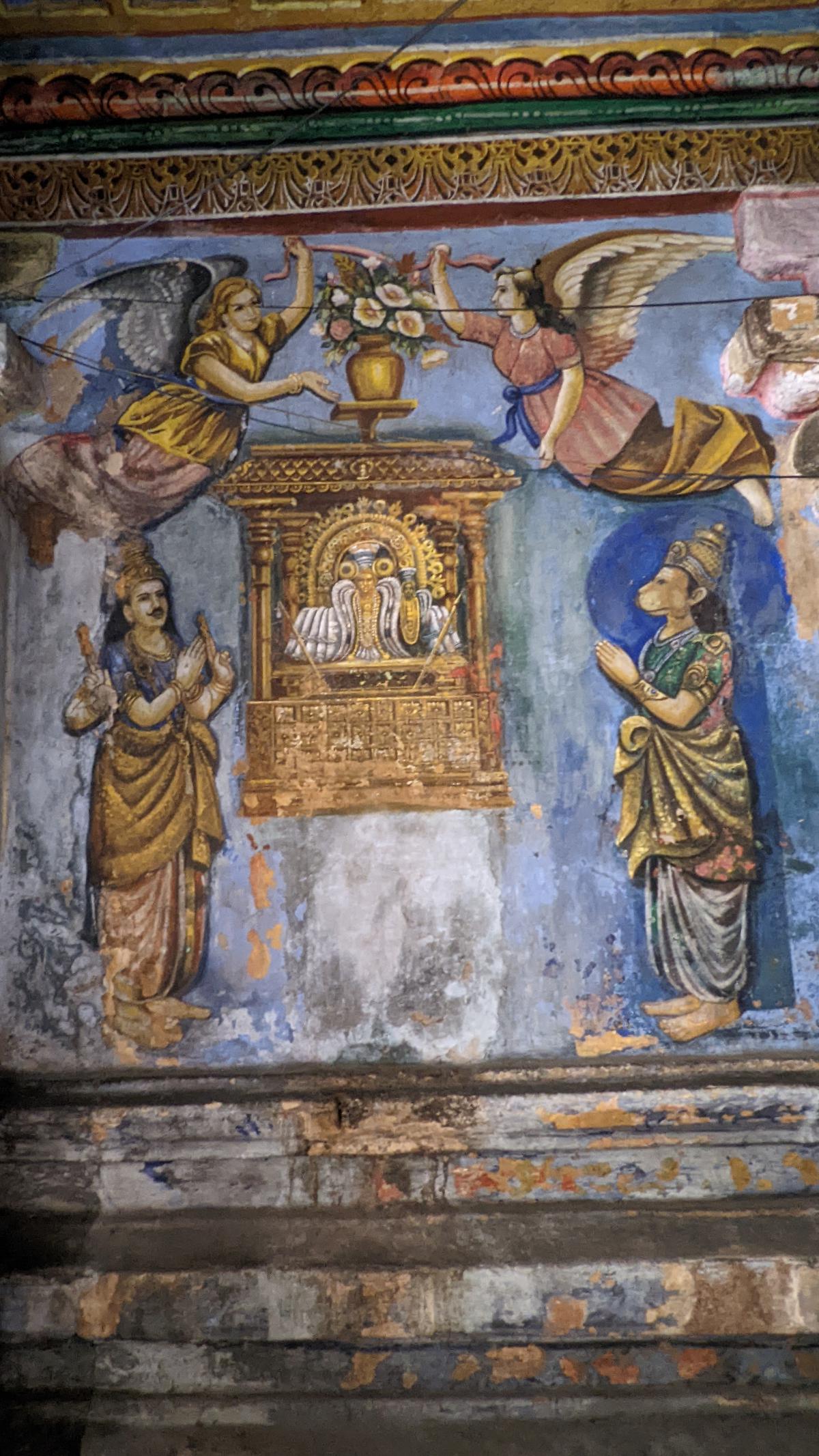
Cherubs painted alongside Hindu deities
The Guptas, too, are actors. But in another play that has resulted in what we experienced. They are characters in the evolution of India’s hospitality industry. They began LuxUnlock in 2021 “as a response to COVID-19”. Prior to the pandemic they had run a travel company called Milesworth Journeys, which counted among its clientele South India’s wealthiest, and regularly ran trips for EO (entrepreneurs’ organisation) and YPO (young presidents’ organisation) chapters. There was also a homestay business named Footprint, primarily managed by Rucha. Ashish also had that Andamans stalwart, Barefoot on Havelock Island, which he co-founded. Collectively they’d had over two decades worth of experience.
The pandemic lockdowns shuttered both Milesworth and Footprint, forcing them to pause. “It acted like a trigger,” says Rucha, “where we had to rethink everything we knew.” As they considered “what next”, a client came along to ask if they could manage a villa in Kodaikanal. Having the operational expertise and sensing that the villa rental business was starting to boom, they agreed.
Authenticity of experience
Slowly over two years their strategy and portfolio evolved to include homes that told a story. “It had to be someone’s ancestral residence or have a concept that they want to share with the world,” says Ashish. Mangala Heritage, for instance, created by Ranvir Shah of Chennai’s Prakriti Foundation, is reflective of Shah’s deep interest in the history and culture of Tamil Nadu. Yellowing illustrated pages showcasing events describes in ancient epics, period furniture, and art that reinterprets the traditional dot the property.
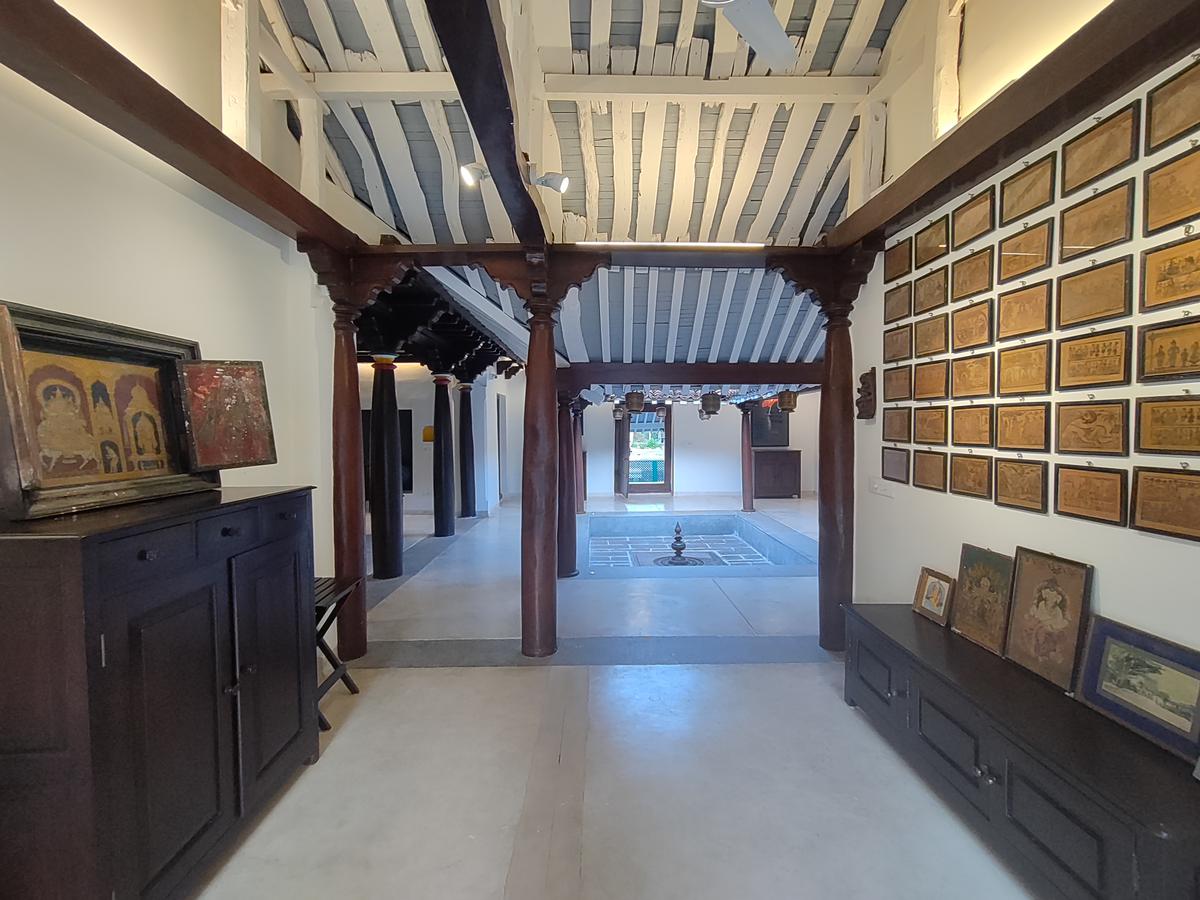
The hallway at Mangala Heritage
Restaurateur Kiran Rao’s Puducherry home Maison Twenty Six, on the other hand, is heavily brushed with her vintage modern aesthetic. Period furniture, collectibles from the world over and art that melds past to future. Another filter was the kind of owners whose homes they were taking on. “These weren’t people who wanted a return on their investments,” Ashish explains. These were people who loved living in their homes. But they also wanted the homes to pay for themselves, and so were willing to share it with a few others.”
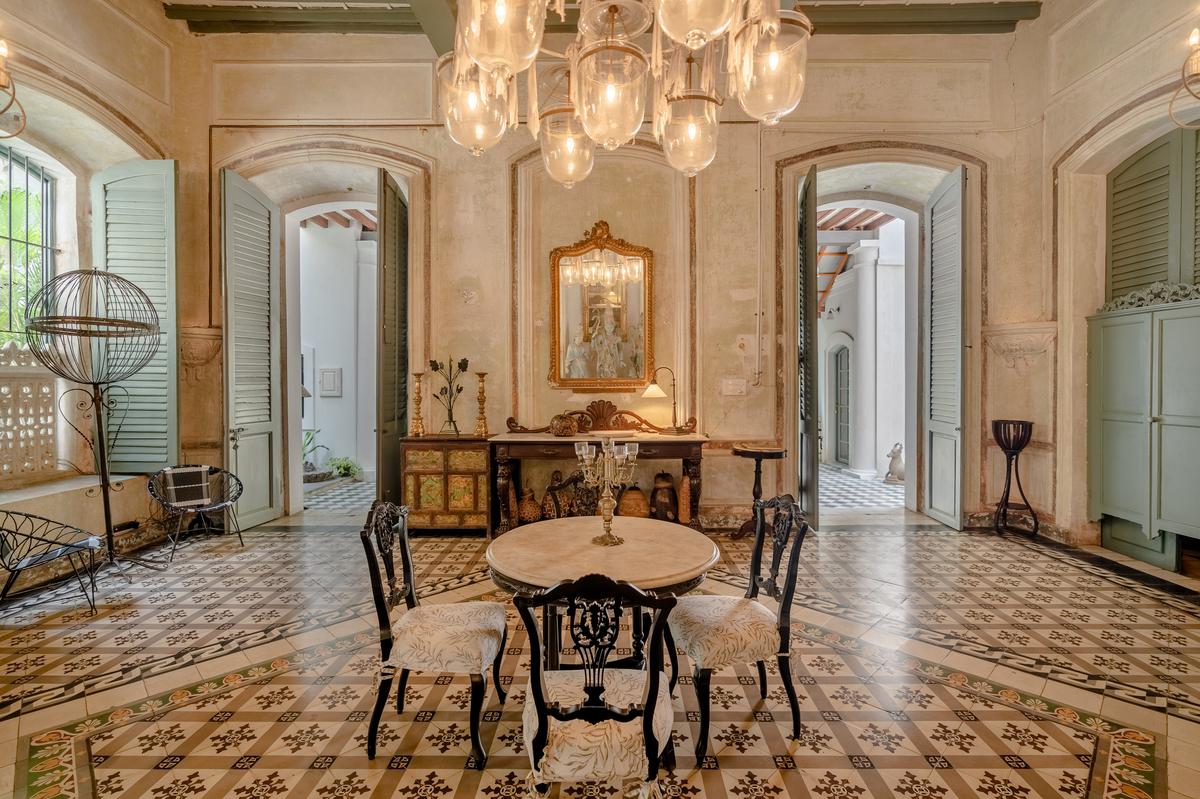
Kiran Rao’s Maison Twenty Six
| Photo Credit:
Vignesh Sivakumar
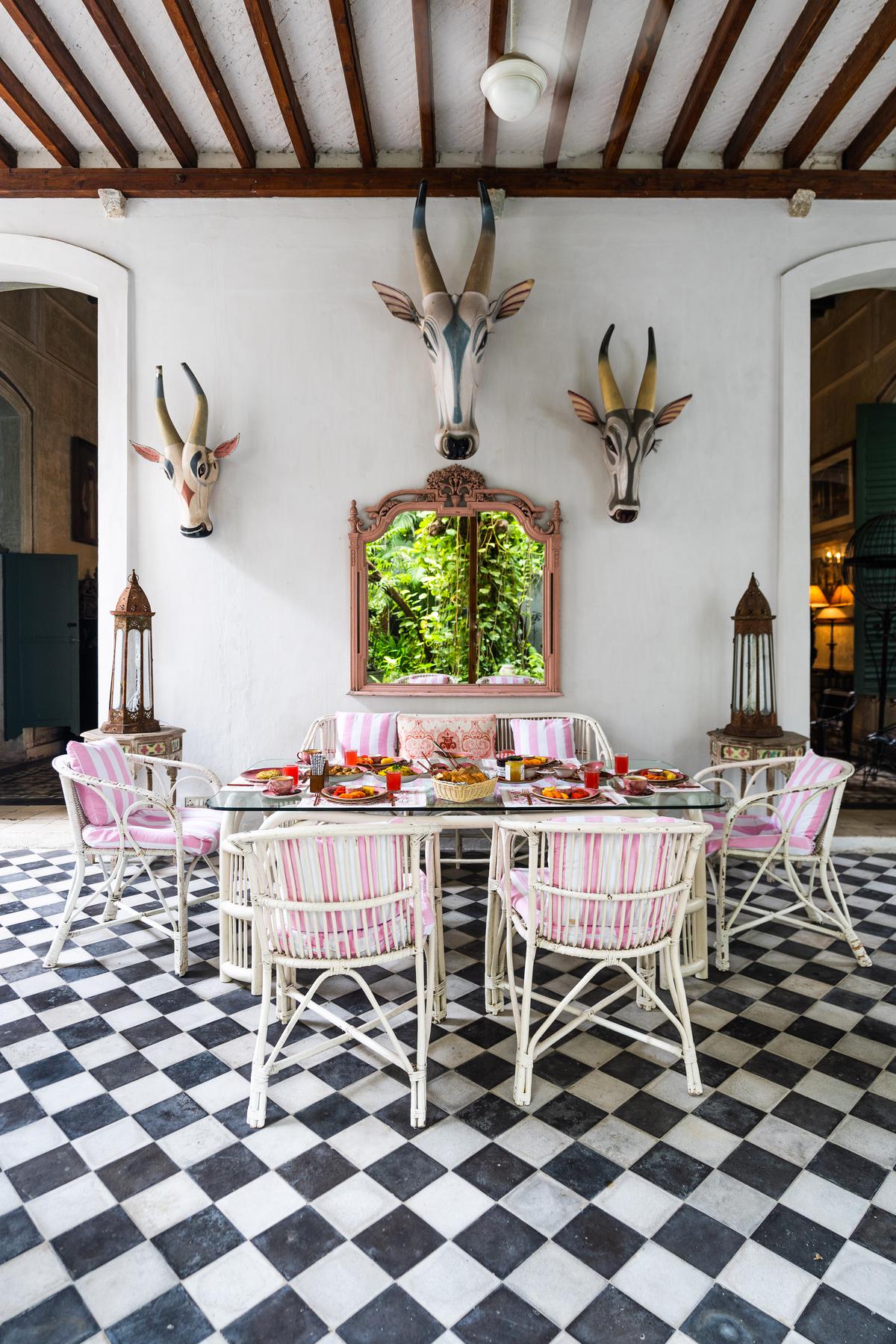
Courtyard dining at Maison Twenty Six
| Photo Credit:
Vignesh Sivakumar
To ensure the authenticity of the experience offered each location was staffed with locals. “It’s also a home truth. The more you spread the economic prosperity with people around you, the more connected and loyal they will be to what you do as a business.”
Today, LuxUnlock’s inventory roster stands at 17 villas across Tamil Nadu, Kerala, Karnataka and Gujarat, with half a dozen more in the pipeline. The list of home owners who’ve entrusted their properties to them reads like a roll-call of the rich and the famous. Apart from Shah and Rao, they include the likes of corporate house E.I.D Parry, actor Mohanlal, and ad filmmakers Sneha Iype and Prakash Verma.
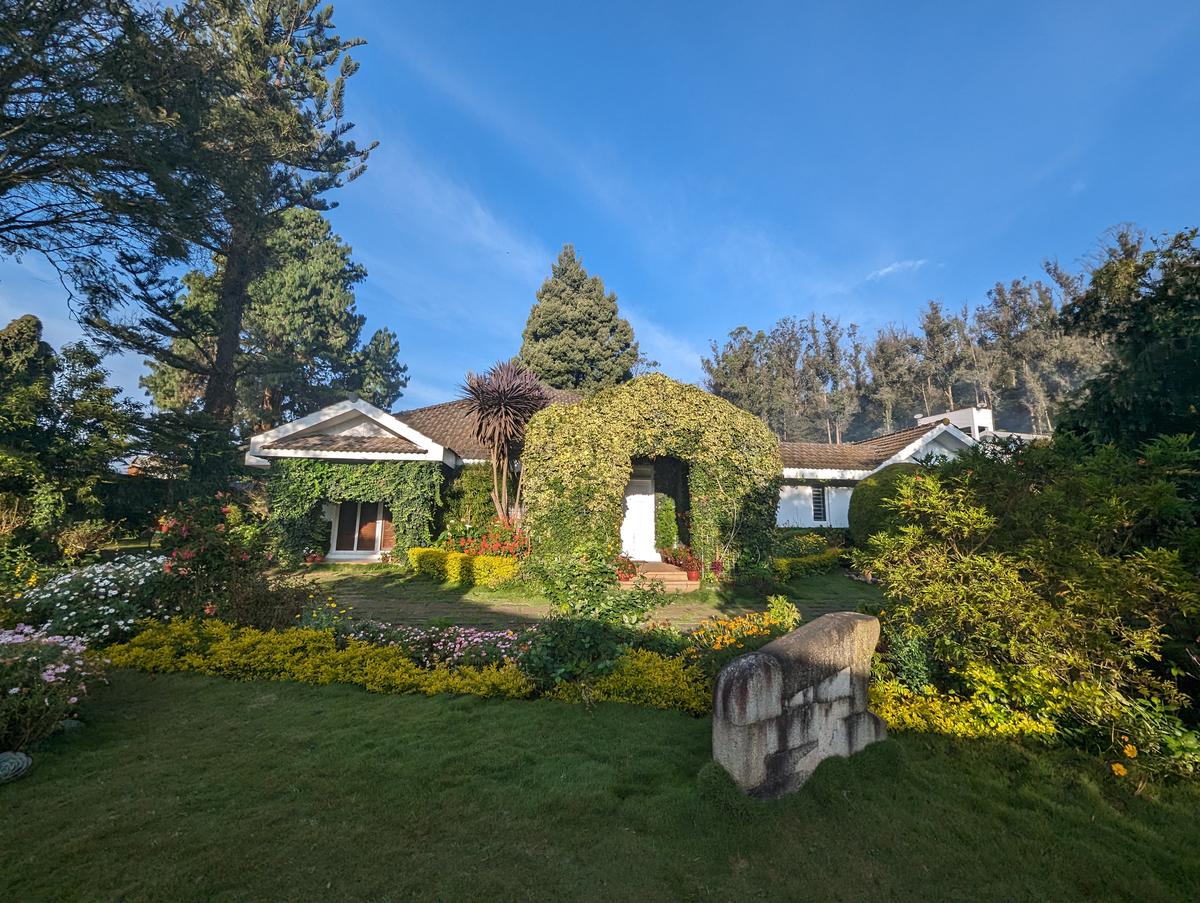
Mohanlal’s Lovedale house, Hideaway
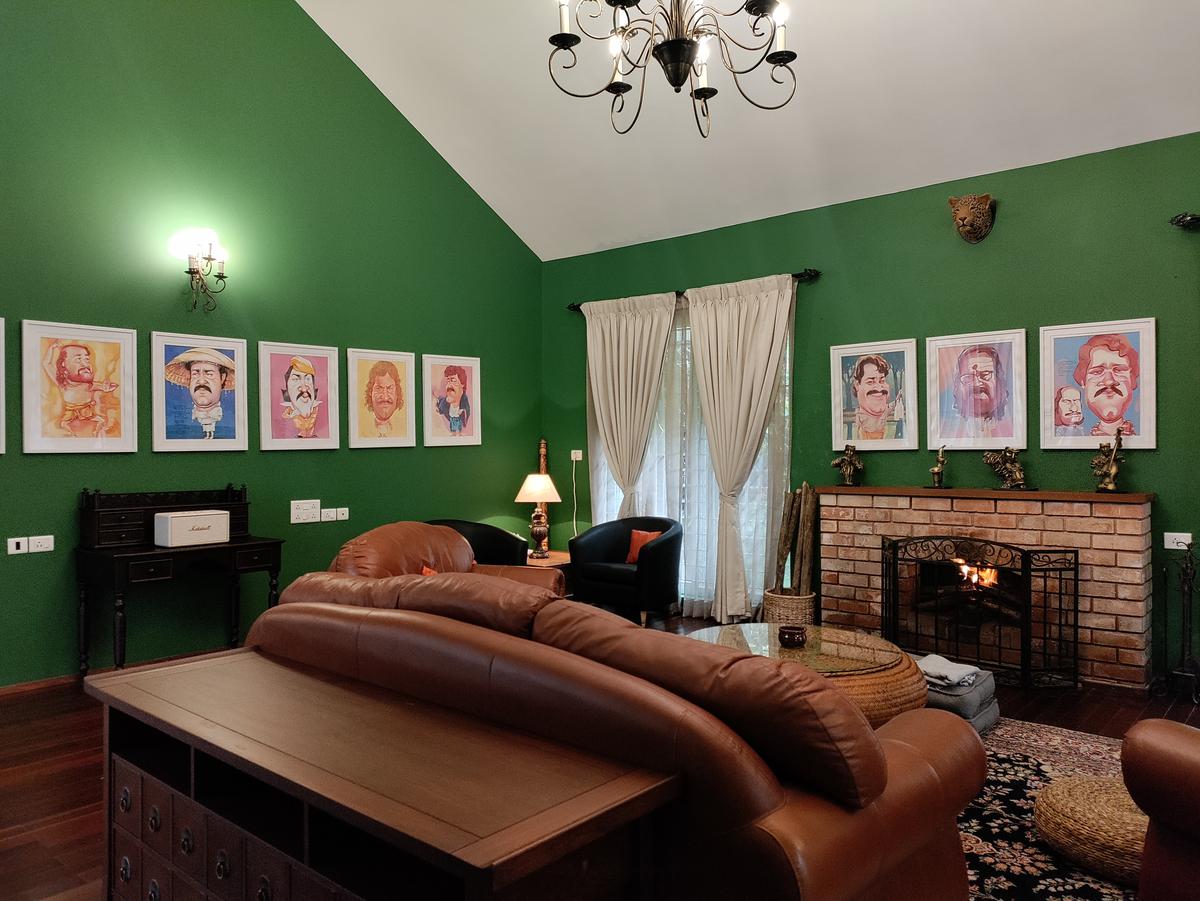
The living room with illustrations of a few of Mohanlal’s many film personas
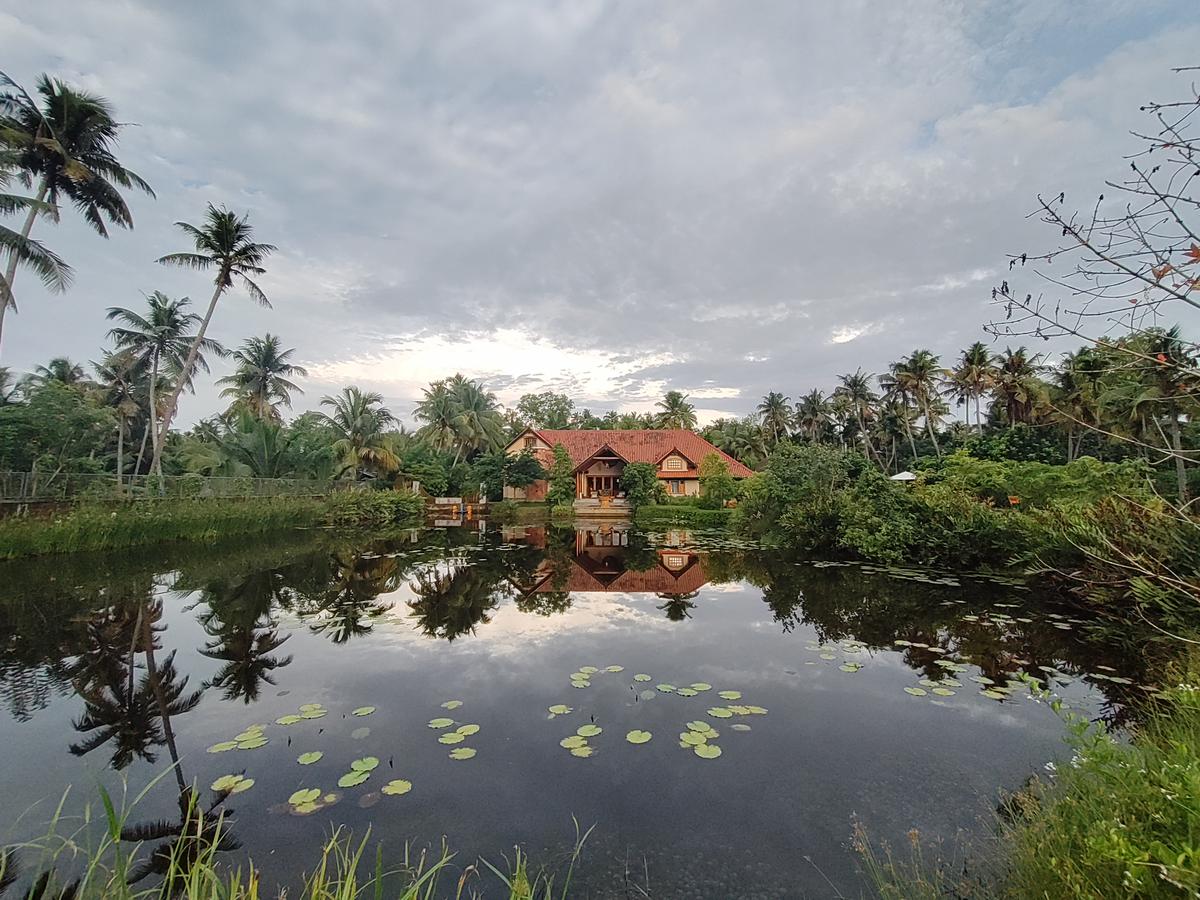
Nakshathra Mana by the Kerala backwaters, owned by Prakash and Sneha Verma of Nirvana Films
Going forward the Guptas are looking at creating destination villas in “places that are underserved”. Cuddalore for instance, and Ahmedabad. “Mrs Meyyappan [The Bangla] put Chettinad on the map. It was an esoteric destination six years ago. But it’s a popular destination now,” says Rucha. “That is what we want to do for other destinations.” Amen to that.
A two-bedroom LuxUnlock villa starts at ₹25,000 per night and includes breakfast.
The writer is based in Mumbai and reports on luxury lifestyle.






